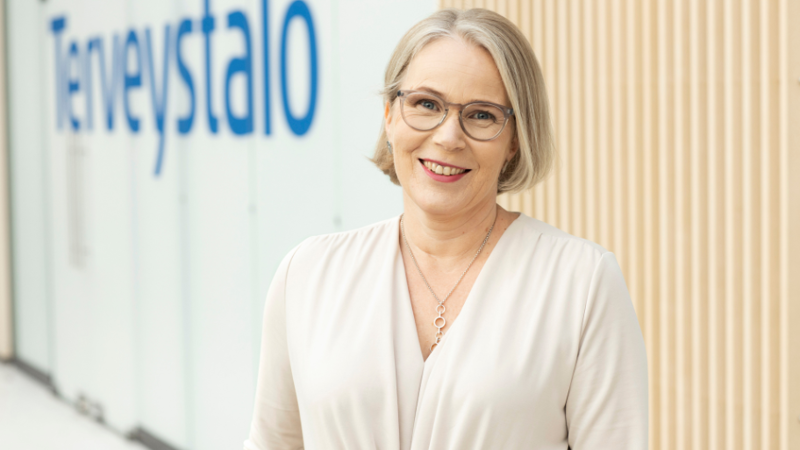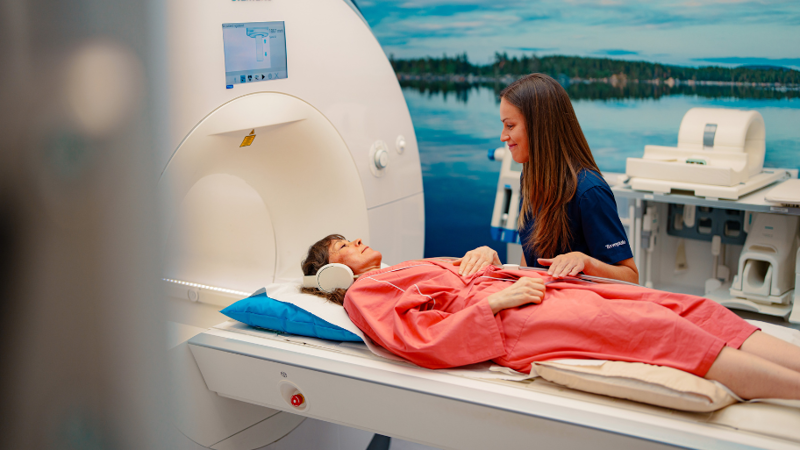Mental ill-health is rapidly increasing in working life - early intervention is part of a strong corporate culture
Sick leave and disability caused by mental health problems have increased rapidly. It is becoming increasingly important for employers to take preventive action to take care of the mental health of their employees.

Working life is very different from ten years ago. The pace of work has become more intense, with employees having to take on big tasks, constantly learn new things and always give their best. Young adults in particular are under pressure from temporary and project-based work and the fierce competition that has already started at school and moved into the world of work.
– Mental strain can manifest itself in withdrawal, performance problems, errors, difficulties in remembering things and in managing information. A stressed person's tolerance becomes narrower, nerves burn out more easily and misunderstandings occur both at work and at home, says Tuija Turunen, senior psychologist and psychotherapist at Terveystalo.
A mind-friendly workplace is a matter of company culture. “
Tuija Turunen, Senior Psychologist and Psychotherapist at Terveystalo
Sick leave and the risk of absenteeism have increased significantly in our society. Mental disorders have also become the most common reason for taking disability pension. However, the increased pace and pressure to perform is not just a matter of work, but of all aspects of life.
- Anxiety is growing in our society. Yet only around half of people with mental disorders seek treatment. We are a nation of survivors," says Turunen.
It takes years for serious symptoms to emerge
Mental disorders are on the rise worldwide. Even before the coronary pandemic, the WHO warned that the next global crisis would be a mental health crisis, and at the time of the pandemic there was talk of a parallel crisis.
The pandemic and the consequences of the war are also affecting our daily lives in Finland: inflation, rising mortgage rates, energy shortages, the outlook for employment, all of these affect each of our own lives.
- People often struggle through crises, gritting their teeth, and medical debt follows suit. We should be prepared for the fact that the serious symptoms will only become apparent years later," says Turunen.
Now is the time to take an interest in your own well-being, that of your colleagues and your loved ones.
The human being is a whole - also as an employee
Turunen points out that we all have a stressed mind at times. The mind is part of the human being and we need to be able to talk about mental issues.
- Mental health skills are civic skills. Emotional skills are strengthened in relation to other people.
- In working communities, prevention of mental disorders starts with remembering that the person is a whole and keeping the mind in mind. The mind should be as common a topic of discussion as exercise and diet. A mind-friendly workplace is a matter of corporate culture.
According to Turunen, the requirement that an employee should be perfectly healthy or perfectly ill should change in the workplace.
– Mental health is a slippery slope, and at some point each of us is on it. Even a more stressful stage of life should be allowed. It is critically important that people remain attached to work in the midst of mental health disorders, as work is rehabilitative and important to the fabric of everyday life. Work is intrinsically linked to a person's identity.
In the debate on mental ill-health, young women are the most prominent age group. However, during the pandemic, mental disorders increased most among those living in peak years. Malaise occurs in all sectors, age and gender groups.
– Early detection is crucial in preventing mental disorders, as mental health problems quickly become chronic, says Turunen.
The benefits of work ability prevention are widespread
It is increasingly important for employers to take preventive care of their employees' mental health in order to maintain the capacity of employees and the work community to work. Mental health challenges need to be identified and recognised. The threshold for seeking support must be low and access to necessary services must be provided without delay.
– When people are met and accepted as they are and receive help in a timely manner, it starts to positively radiate throughout the work community, work productivity and employer image, Turunen says.
– Also, when caring for a working adult who may have children at home, preventive mental health work is also done in relation to children. This benefits society as a whole, Turunen adds.
Terveystalo's experts help to find solutions to factors that stress the work community in a preventive way. Once the situation is under control at the individual level, the bigger picture is always considered, from the need to modify work to managing the work capacity, humanity and culture of the organisation.
– We can't choose what life throws at us, but we can choose that when help is needed, it can be naturally asked for. You don't have to go through these challenges alone, says Turunen.
Solutions for creating healthy workplaces – from individuals to the organizational level
A healthy workplace is not created by chance, but through planning. Increased workload from professional and personal life manifests as sick leaves. Although treating the symptoms may resolve acute issues, a healthier work environment is built on a more sustainable foundation by focusing on the sources of the workload. To achieve the most effective results, we must proactively solve these root causes that threaten the workplace. As a partner in the workplace, we help prioritize what is most important.
Read more occupational health articles

How technology helps relieve mental stress: "When the load is high, the threshold must be low."
Mental health disorders have overtaken musculoskeletal disorders, which had long been the leading cause of sick leave. Work is changing, and the range of sick leave caused by mental health issues has also changed. We must be able to offer new solutions to this challenge.

Extensive data set of 200,000 samples: Nightingale study reveals link between illness risks and sick leave
Data from the Finnish Nightingale study, which is used in Terveystalo's occupational health services, reveals a clear link between lifestyle-related health risks and sick leave. The exceptionally extensive data set of over 200,000 customers shows that people with a low risk of illness had significantly fewer absences, while those in high-risk groups had more absences. The results highlight the importance of preventive healthcare in ensuring work ability and the competitiveness of companies.

Strong identification speeds up your service experience when calling us
Soon you can identify yourself easily and securely before your call is answered. Read below to see how the identification process works.

Terveystalo's digital services have been awarded the internationally recognized ISO27001 information security certification.
Terveystalo's information security practices, processes, and risk management are in line with international best practices.

Does massage help relieve stress? – Touch restores and calms the body and mind
Stress is not always visible on the outside, but the body does show signs when the strain increases. According to Lassi Ylönen, a trained massage therapist at Terveystalo Rela, the body often communicates stress through subtle signs.

Circular economy and artificial intelligence boost performance and improve care
At the heart of sustainable healthcare, technology serves as a tool for improving both the quality of care and accountability. Terveystalo favors solutions that combine sustainability, cost-effectiveness, and medical expertise.